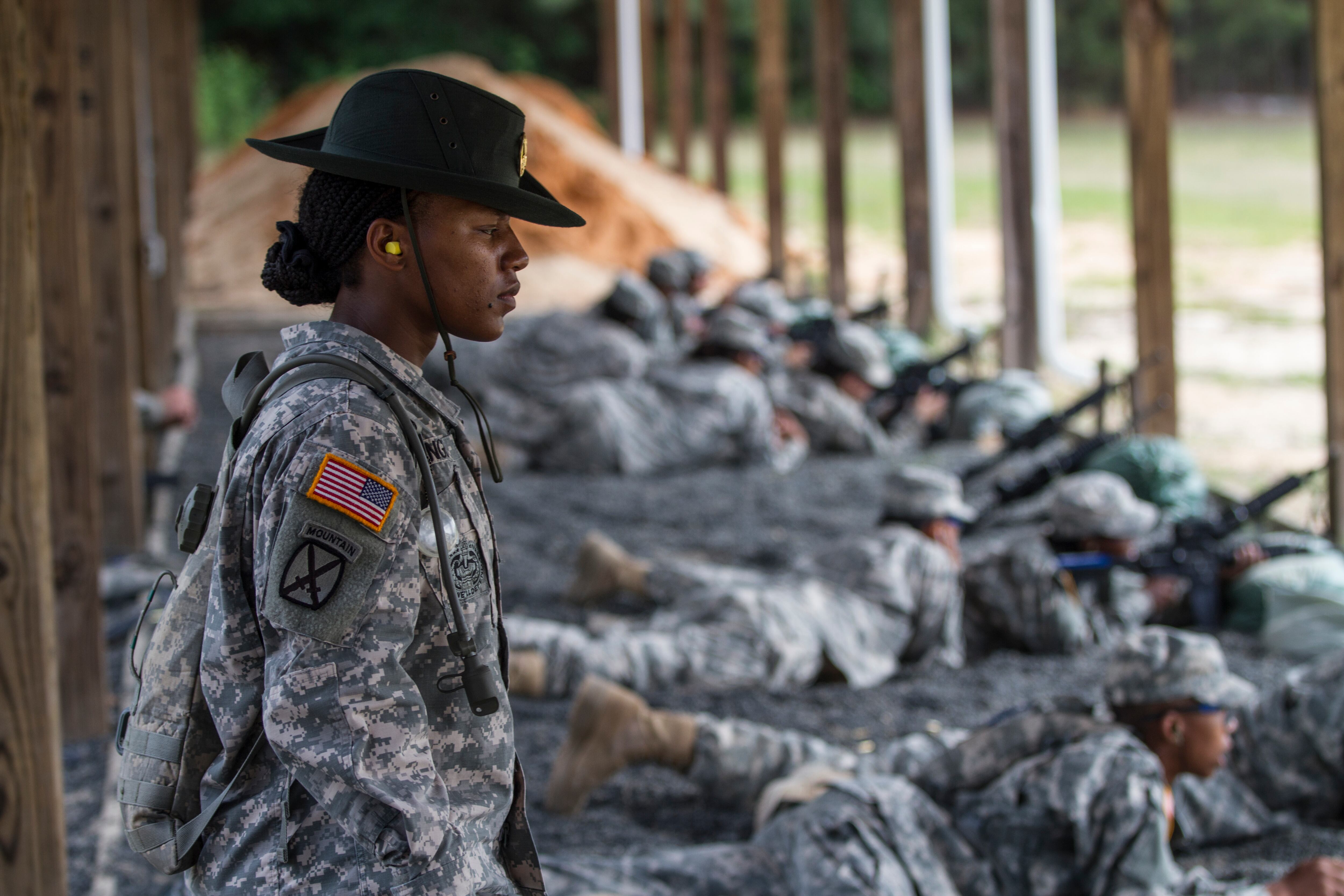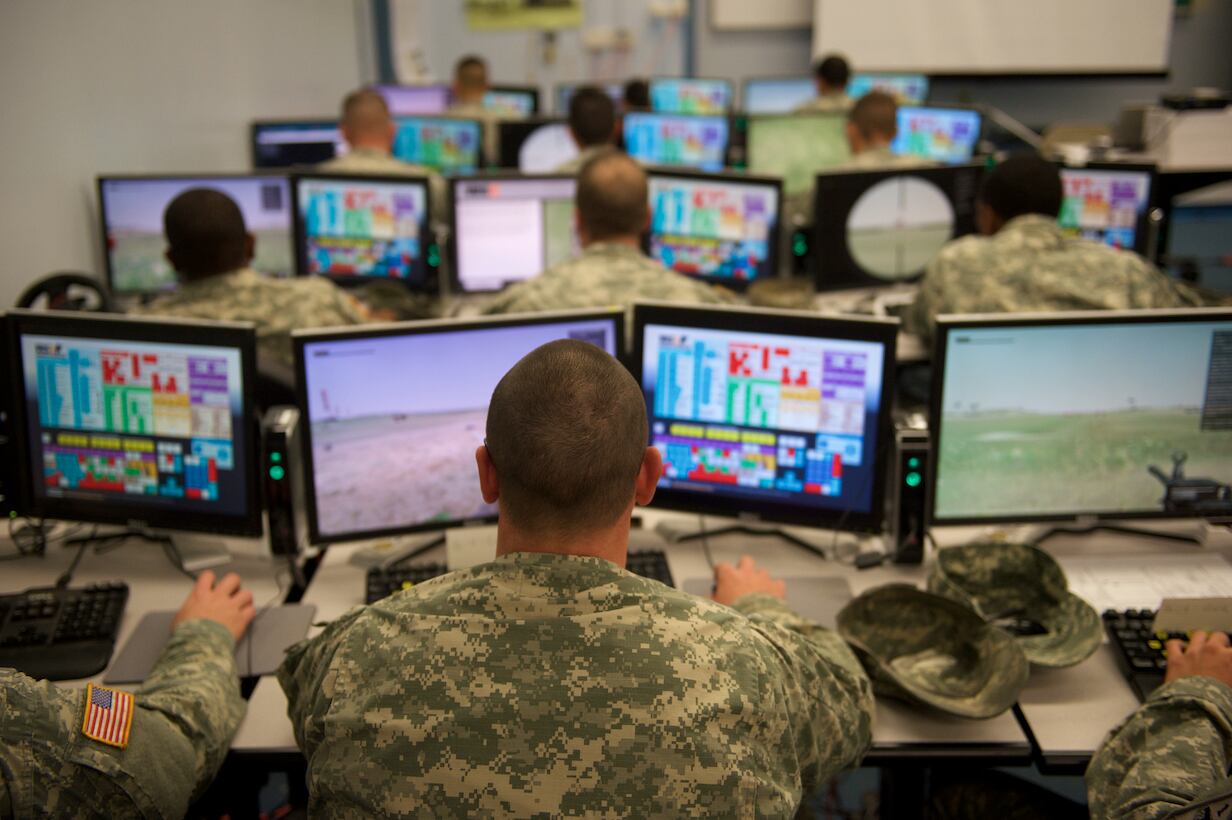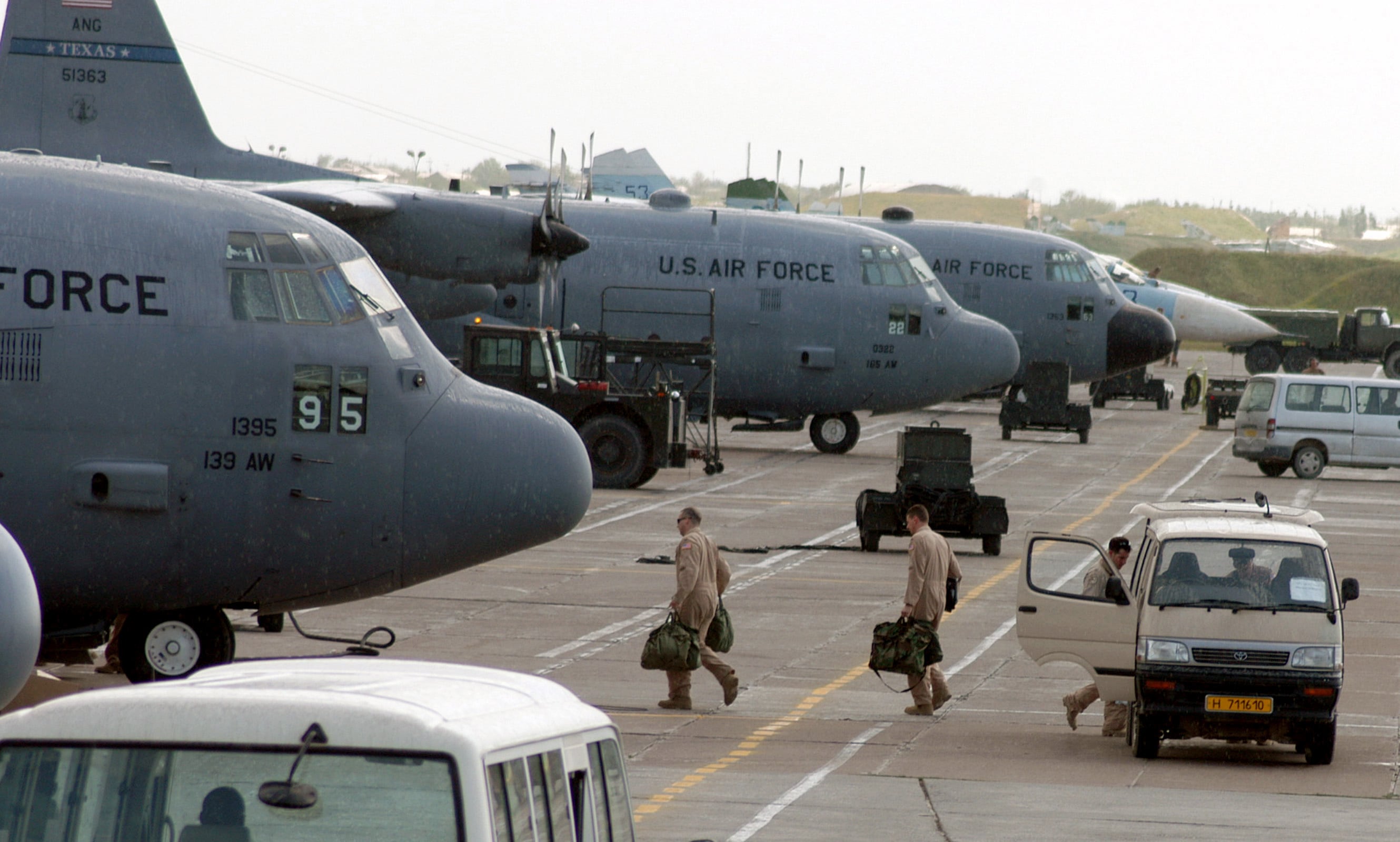The Army is seriously examining whether to bring back drill sergeants to advanced individual training, and replace AIT platoon sergeants. If adopted, this would mean a huge reversal for the service.
The Army in 2007 replaced drill sergeants with AIT platoon sergeants as a way to recognize a young soldier's transition from "less total control and a little bit more of recognizing the role of the noncommissioned officer," said Command Sgt. Maj. David Davenport, the senior enlisted soldier for Training and Doctrine Command.
"Currently what we're doing is we are moving forward with putting drill sergeants back into the AIT training environment," Davenport said Thursday during a town hall with soldiers.
The change is still just a recommendation, "but we're trying to do everything that we can to make sure our soldiers are successful when they transition to their first unit of assignment," he said.
The Army loses about 12 percent of its trainees, and "we want to make sure they're the fittest, most disciplined, most well-trained soldiers," Davenport said. "That's not to say that AIT platoon sergeants aren't doing that, but this is another way to invest in our training."
The Army switched to AIT platoon sergeants in 2007, putting them in place to train and guide company-sized units of new troops as they learn the technical skills required for their first assignment in the Army.
Those who have served as AIT platoon sergeants praise it as a key broadening assignment that gives NCOs leadership experience and a chance to mentor young soldiers. But the job also has gained a reputation for hard work with long hours and no incentives. For example, AIT platoon sergeants wear a patrol cap, not the distinctive campaign hat worn by drill sergeants. They also do not receive special duty assignment pay; drill sergeants earn an extra $300 a month. Some also have said the training for AIT platoon sergeant candidates was too basic, not challenging and inadequate for preparing candidates for the job.
On Thursday, Davenport said TRADOC has done a cost analysis into putting drill sergeants back in AIT, and now "we're moving the case forward and to see if it's feasible, affordable and sustainable."

Should drill sergeants replace AIT platoon sergeants? The Army is examining the feasibility of such a plan.
Photo Credit: Sgt. 1st Class Brian Hamilton, 108th Training Command- Initial
The question about drill sergeants in AIT was one just of several issues discussed during Thursday's town hall. The two-hour event, which was streamed live, was TRADOC's first-ever "State of the NCO Development Town Hall." Panelists included senior NCOs from TRADOC, the Army National Guard and the Army Reserve, and they took questions from social media and a TRADOC-run chat room. Soldiers also were able to submit video questions.
Here's a look at some of the other issues discussed.
Making sure soldiers go to school.
The Army's new STEP, or Select-Train-Educate-Promote, policy requires soldiers to have the appropriate level of professional military education before they can be promoted. STEP went into effect Jan. 1 for sergeants and staff sergeants and is scheduled to be phased in for the other grades.
Several soldiers have voiced concerns about getting a seat in the school they need, especially if they're in a low-density military occupational specialty.
"We have the capacity to train," Davenport said. "But as you look at seats, we have to make sure we are spreading those seats across the year so soldiers have the opportunity to attend those schools."
Let's say the Army offers 100 seats annually for the Advanced Leader Course in a particular MOS and the course is taught twice a year, Davenport said. TRADOC is looking a solutions that include maintaining the same number of seats but offering the class four or five times a year, he said.
The same challenge exists in the Guard as well, especially low-density MOSs with multiple-phase PME courses, said Command Sgt. Maj. Brunk Conley, the senior enlisted soldier for the Army National Guard.
"It's very challenging for our soldiers who have a three-phase course to get selected to go to those schools, and then they have to wait three years in two-week increments to get those done," he said.
One possible solution is to give soldiers who "show good faith" and complete the first phase of their required course a conditional promotion, Conley said.
"We're looking at adjusting the policy," he said, adding that no final decision has been made.
If the change is made, soldiers can be promoted after completing the first phase of their PME; they are then required to complete the follow-on course or risk having their promotions rescinded.

Soldiers want less online training.
Photo Credit: Sgt. Brooks Fletcher/Army
Updating the Structured Self-Development courses.
Soldiers have not been shy about voicing their dissatisfaction with the online SSD courses every soldier must complete before attending a resident PME course.
"Right after STEP, the second most [frequent] question I get asked is about SSDs," Davenport said. "Quite honestly, the comments are it's not to standard, and I somewhat agree."
The Army has formed a working group at the Sergeants Major Academy, and the group has "begun a review" of all six levels of SSD, he said.
"We want to make sure the SSD prepares a soldier to come to school and the experience in school is tied to the next SSD rather than just dumping things in there without any rigor," Davenport said.
TRADOC also is looking at a suggestion from the force calling for the Army to temporarily "lock out" soldiers who don't understand the tasks outlined in the SSD or who merely rush through in order to check the block.
"I've heard from the force," Davenport said. "They want it to count for something, so we're working on that."
Implementing the new NCO Evaluation Report.
Soldiers wanted to know how the new NCOER will impact promotions.
"I don't know yet because we haven't experienced it," Davenport said. "We have the guidance out, we've done the training, we've begun writing the NCOERs, but we don't know how the board will interpret that."
The Army on Jan. 1 launched a new NCOER that is sharply different from enlisted rating systems of the past.
With the new NCOER, the Army will begin profiling raters like it does for officer promotions in the hopes that it will fix rating inflation.
Under the new system, senior raters can only give 24 percent of their NCOs a top, or "Most Qualified" rating. And the 2-block or "Highly Qualified" rating is now the standard; in contrast, under the old system, a 2-block rating would have practically guaranteed a non-selection for promotion.
The new NCOER also introduces separate report forms for soldiers or different ranks and new responsibilities for raters and senior raters. This includes mandatory counseling by the rater and senior rater.
The panelists all agreed that the new NCOER will help the Army better select the best, most qualified soldiers for promotion.
"I've sat on numerous NCO boards, and we've probably promoted, potentially, the person who wasn't necessarily the best prepared because all of the remarks were canned, they all look alike," said Command Sgt. Maj. James Wills, the senior enlisted soldier for the Army Reserve. "You've got to write what you mean and mean what you say."
Michelle Tan is the editor of Army Times and Air Force Times. She has covered the military for Military Times since 2005, and has embedded with U.S. troops in Iraq, Afghanistan, Kuwait, Haiti, Gabon and the Horn of Africa.





